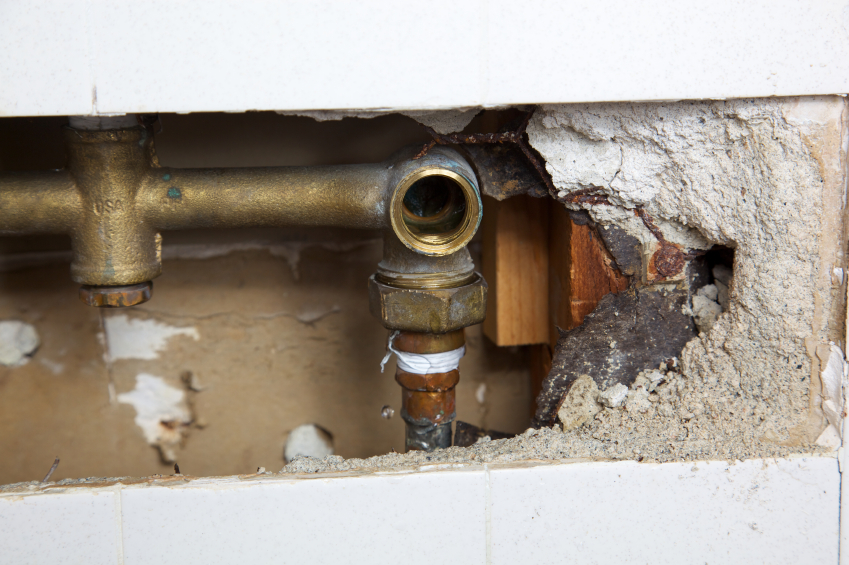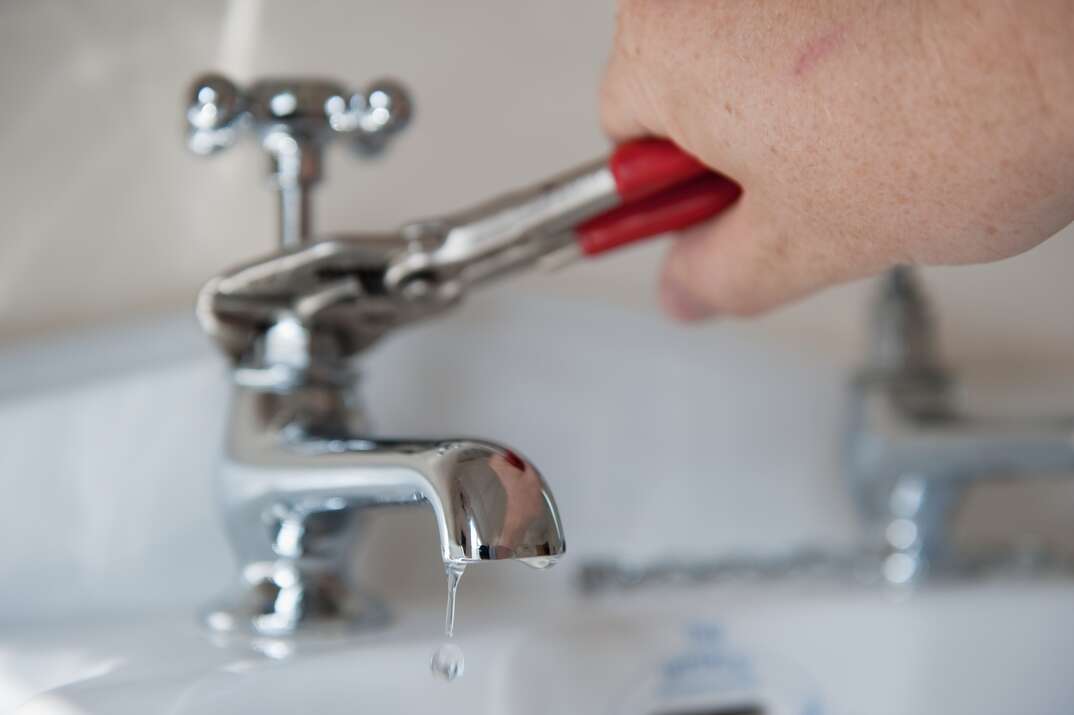Hiring the Pros: Typical Home Appliance Troubles Best Entrusted To Plumbers
Hiring the Pros: Typical Home Appliance Troubles Best Entrusted To Plumbers
Blog Article
What are your opinions on Why Do My Pipes Make Noises?

To identify loud plumbing, it is important to identify very first whether the undesirable audios occur on the system's inlet side-in other words, when water is transformed on-or on the drainpipe side. Sounds on the inlet side have varied causes: extreme water stress, used shutoff and faucet parts, incorrectly attached pumps or various other appliances, incorrectly put pipeline bolts, and also plumbing runs having way too many limited bends or various other constraints. Sounds on the drainpipe side usually stem from poor location or, just like some inlet side noise, a design consisting of limited bends.
Hissing
Hissing sound that takes place when a tap is opened a little generally signals excessive water pressure. Consult your local water company if you think this problem; it will be able to tell you the water pressure in your area and can install a pressurereducing valve on the incoming water supply pipe if necessary.
Other Inlet Side Noises
Creaking, squealing, damaging, breaking, and also touching normally are triggered by the growth or contraction of pipes, typically copper ones supplying hot water. The sounds take place as the pipelines slide versus loosened fasteners or strike nearby home framing. You can usually identify the area of the issue if the pipes are revealed; just adhere to the noise when the pipelines are making noise. More than likely you will uncover a loose pipeline hanger or a location where pipes lie so near to floor joists or various other mounting pieces that they clatter versus them. Connecting foam pipeline insulation around the pipes at the point of call must remedy the issue. Be sure straps and also hangers are safe and secure as well as provide appropriate assistance. Where possible, pipeline fasteners must be attached to large structural aspects such as structure walls as opposed to to framing; doing so minimizes the transmission of resonances from plumbing to surfaces that can magnify and move them. If attaching bolts to framing is inevitable, wrap pipelines with insulation or other durable product where they call bolts, and sandwich completions of new bolts between rubber washers when mounting them.
Correcting plumbing runs that deal with flow-restricting tight or countless bends is a last hope that ought to be taken on only after consulting a proficient plumbing contractor. Regrettably, this situation is relatively common in older homes that may not have actually been constructed with indoor plumbing or that have actually seen numerous remodels, particularly by amateurs.
Babbling or Screeching
Extreme chattering or shrieking that occurs when a shutoff or faucet is switched on, and that generally disappears when the installation is opened completely, signals loosened or faulty inner parts. The remedy is to replace the shutoff or faucet with a brand-new one.
Pumps as well as devices such as washing makers and dishwashing machines can transfer electric motor noise to pipes if they are incorrectly connected. Connect such products to plumbing with plastic or rubber hoses-never inflexible pipe-to isolate them.
Drain Noise
On the drainpipe side of plumbing, the chief objectives are to eliminate surface areas that can be struck by falling or hurrying water as well as to insulate pipelines to contain inevitable sounds.
In brand-new construction, tubs, shower stalls, commodes, as well as wallmounted sinks and containers ought to be set on or against resistant underlayments to decrease the transmission of sound with them. Water-saving toilets and also faucets are less noisy than standard designs; install them instead of older kinds even if codes in your area still permit making use of older fixtures.
Drainpipes that do not run up and down to the cellar or that branch into straight pipeline runs supported at flooring joists or various other framing existing especially problematic sound issues. Such pipes are huge sufficient to emit considerable resonance; they likewise carry substantial amounts of water, that makes the circumstance worse. In brand-new construction, define cast-iron soil pipelines (the big pipes that drain pipes toilets) if you can manage them. Their massiveness has much of the noise made by water going through them. Also, prevent routing drains in walls shared with bed rooms and areas where people collect. Walls consisting of drainpipes must be soundproofed as was described previously, using double panels of sound-insulating fiber board and wallboard. Pipes themselves can be covered with special fiberglass insulation created the purpose; such pipes have a resistant vinyl skin (occasionally including lead). Results are not constantly satisfactory.
Thudding
Thudding noise, commonly accompanied by shivering pipes, when a faucet or home appliance shutoff is turned off is a condition called water hammer. The sound and also resonance are caused by the reverberating wave of stress in the water, which instantly has no place to go. In some cases opening a shutoff that releases water promptly into a section of piping including a limitation, joint, or tee installation can produce the same condition.
Water hammer can usually be cured by setting up fittings called air chambers or shock absorbers in the plumbing to which the issue shutoffs or taps are attached. These tools permit the shock wave created by the halted flow of water to dissipate in the air they contain, which (unlike water) is compressible.
Older plumbing systems may have short vertical sections of capped pipe behind walls on faucet runs for the exact same function; these can ultimately full of water, decreasing or ruining their effectiveness. The cure is to drain the water system totally by turning off the major water shutoff and opening all faucets. Then open the primary supply valve as well as shut the taps one by one, beginning with the tap nearest the shutoff and also finishing with the one farthest away.
If Your Plumbing is Making These Sounds, There’s a Problem
A Bang or Thump When You Turn Off a Faucet
If a loud bang or thump greets you each time your turn off running water, you likely have a water hammer. A water hammer occurs when the water velocity is brought to a halt, sending a shock wave through the pipe. It can be pretty jarring — even worse, damaging to your plumbing system. All that thudding could loosen connections.
Strange Toilet Noises
You’re so familiar with the sounds your toilet makes that your ears will be attuned to anything out of the ordinary. Fortunately, most unusual toilet noises can be narrowed down to just one of several problems.
Foghorn sound:
Open the toilet tank Flush the toilet When you hear the foghorn noise, lift the float to the top of the tank If you’re ambitious, you can remove the ballcock valve and disassemble it to replace the washer. Or you can more easily replace the ballcock valve entirely. This device is relatively inexpensive and available at most any hardware store.
Persistent hissing:
The hissing following a flush is the sound of the tank filling. It should stop once the tank is full. But if the hissing continues, it’s likely because water is leaking out of the tank. The rubber flap at the bottom of the tank can degrade, letting water slip through and into the bowl. That’s why the tank is refilling continuously. Fortunately, this is an easy fix:
Cut the water to the toilet by closing the shutoff valve on the water supply line. Flush the toilet to drain the tank. Disconnect the flapper Attach the new flapper Gurgling or bubbling:
Gurgling or bubbling suggests negative air pressure in the drain line, likely resulting from a clog. As air releases, it causes the water in the toilet to bubble. This could either be a minor issue or a major one, depending on the clog’s severity. Clogs can be caused by toilet paper or more stubborn obstructions such as tree roots. If you can’t work out the clog with a plunger, contact a professional plumber for assistance because a clog of this magnitude could lead to filthy and unsanitary sewage backups in your sink bathtub.

I was shown that article on Why Do My Plumbing Pipes Make A Knocking Noise from a good friend on another web address. Sharing is caring. You won't know, you may just be helping someone out. Many thanks for taking the time to read it.
This Website Report this page